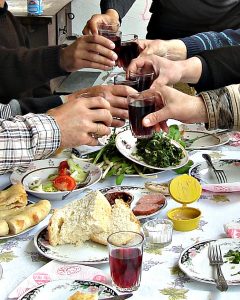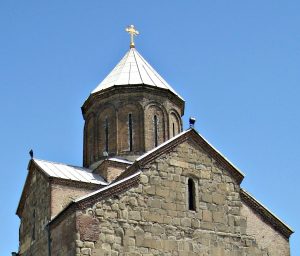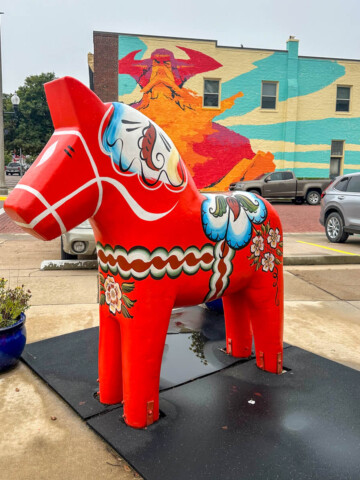It's that time of year again, the period after December 25 when we still have Christmas decorations throughout the house and Christmas lights sparkling brightly outside. I love this season, with the lights, visitors, family, laughter, and squealing children, but now is the time people start to say, "So…have you been really busy? Are you going to turn those Christmas lights off outside? I mean, it is almost 2 weeks after Christmas."
Those are the brave ones. Neighbors and visitors who are not so brave either keep glancing over at the decorations or they determinedly attempt to not look at them at all. I laugh and explain yes, I will jump in and focus on my January organization and cleaning after January 7, but now is a time we reflect on Christmas.
Since when is there an Old Christmas Day?
My husband is from Georgia (the country, not the state), and many Orthodox Christians in Eastern Europe celebrate Christmas according to the old calendar. It was called the Julian calendar before changing to the Gregorian calendar if you want to get technical. 11 days were dropped when England and Scotland switched calendars in 1752.
In the Georgian Orthodox church, services last all night before Christmas day, and you stand with other parishioners through the entire service. There are no chairs or benches except for perhaps at the back or sides along the wall. It is a joyous service, and families return to their homes afterward, light candles, and begin the traditional Georgian feast, or "supra". These can go on for hours, literally.
How can a dinner party go on for 9 hours?
I once attended a supra lasting 9 hours, and that was only the time I left, others were still going strong. There is usually a ton of food, with plates quickly replenished by the hosts so nothing appears lacking. Also you'll have music, dancing, laughter, and above all, toasting. The toastmaster toasts to pretty much everything: God, peace, the birth of Christ, the New Year, children, mothers, Georgia, joy, love, the hosts, the vine of the grapes that made your wine…after nine hours you get down to some pretty interesting ones.
But, back to Christmas. In many Georgian towns the local clergymen process through the streets carrying crosses, flags, and icons and sing songs praising the birth of Christ. Many join in the procession, and children wearing white go to the front to lead. In the capital city Tbilisi, the Georgian Patriarch ends by speaking to the crowd and congratulating everyone at Christmas.
Here in Colorado we still celebrate on December 25, but we keep our decorations up as a reminder of the Christ's birth and our ties to Georgia. We also like to teach our children that people in different cultures celebrate holidays in different ways. It is not odd or weird, but an opportunity to learn something new and to take pride in.
What other cultural celebrations or family traditions do you have during the winter holidays?
I tend to be partial to the French tradition on January 6 in serving the particularly tasty "la galette des rois", or King Cake. This is baked to celebrate Epiphany, when the three wise men visited the baby Jesus. A small figurine is baked inside the cake, "la fève", and the person who finds the figure is crowned king or queen for the day. Now really, can you imagine a child not loving this custom?!?
Whatever you do, enjoy your friends and family, hold them close. Extend your kindness to all, including that crazy neighbor who leaves their Christmas lights on weeks past Christmas. Gagimarjos! Cheers to you, and I wish you joy and peace in the New Year!








Leave a Reply